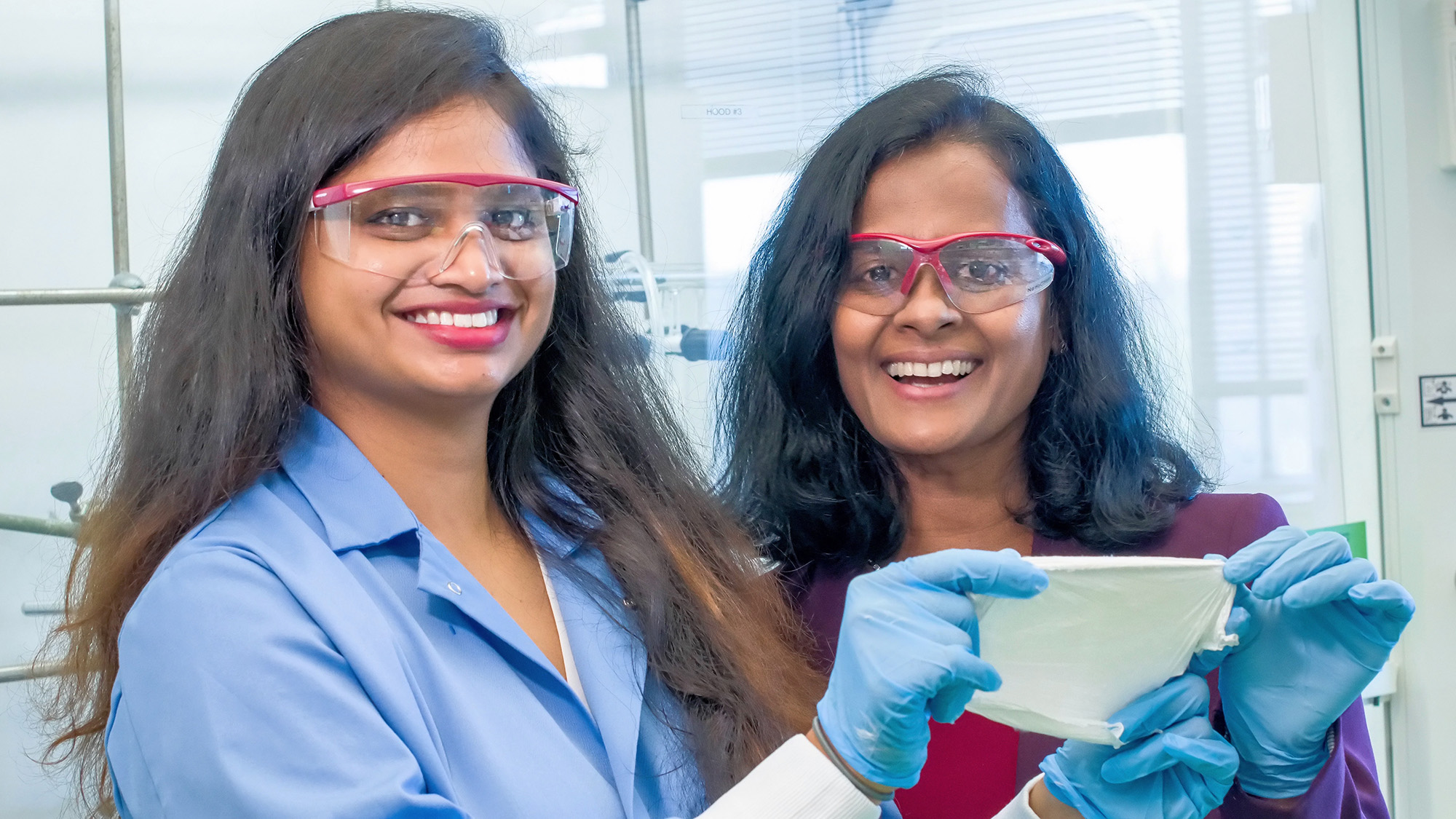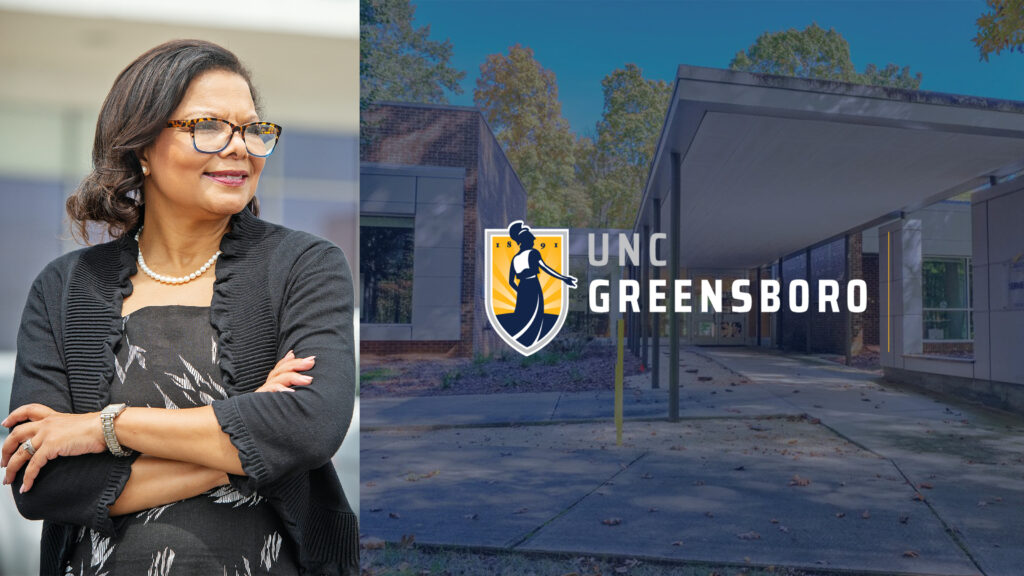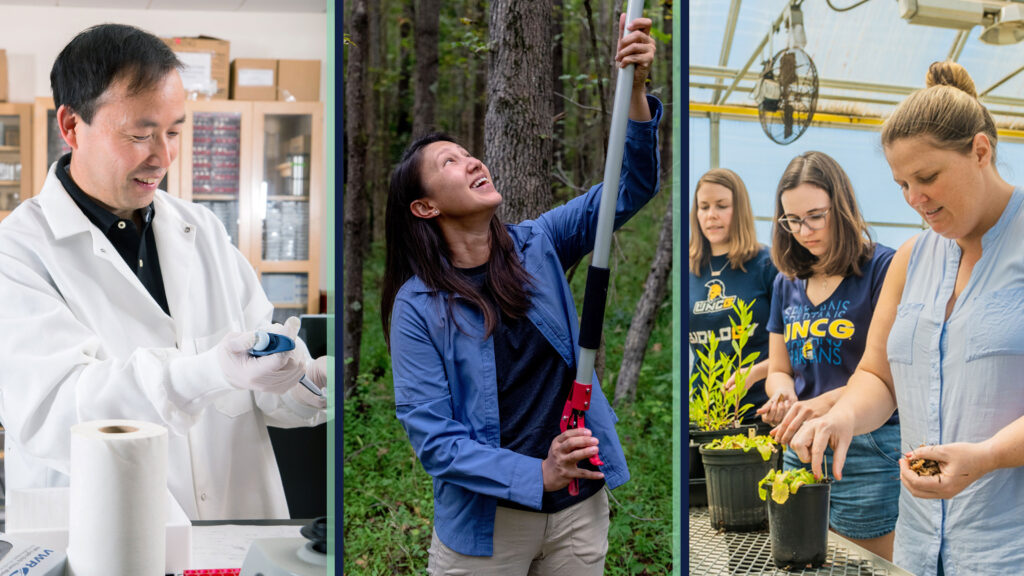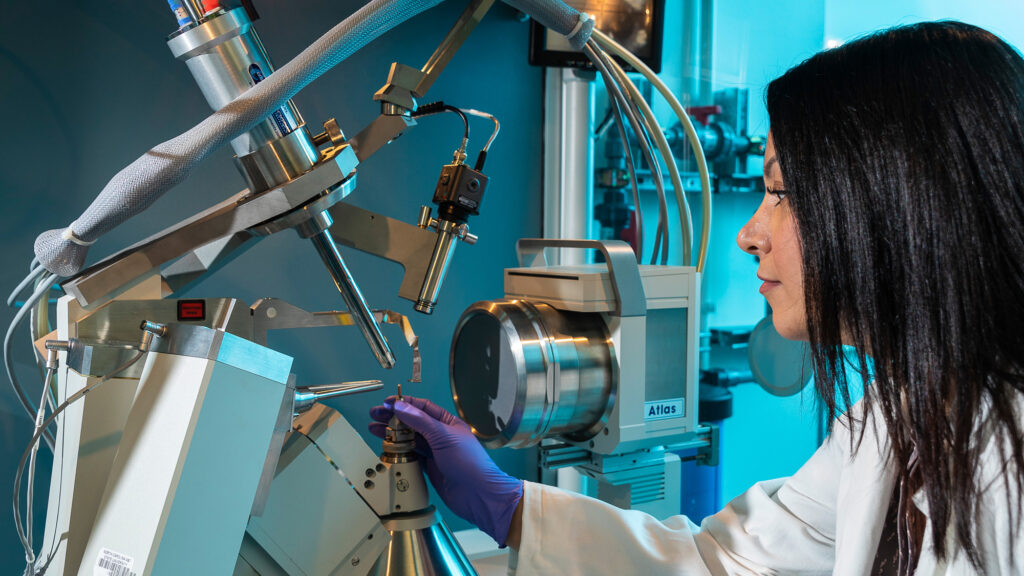Minerva Lithium, LLC has been awarded a $256k National Science Foundation Small Business Innovation Research Phase I grant. The NSF SBIR funds will support development of Minerva Lithium’s novel lithium extraction technology as the company shifts to pilot-scale and identifies potential investors and clients.
“This is our first major milestone. We previously participated in the NSF I-Corps Program, but this is a federal grant. It supports companies who have proof of concept,” says Minerva Lithium co-founder Dr. Sheeba Dawood, an alumna of UNC Greensboro.
The clean-tech company was founded by Dr. Dawood and UNCG Associate Professor Hemali Rathnayake (Nanoscience), who have developed a Nano-Mosaic© technology platform that can selectively trap valuable minerals and harmful pathogens from water.
“Our current target is lithium because of the high demand,” Dawood says. Lithium currently costs $8,000 per ton, and demand is still rising. “Recently President Biden announced that, by 2030, half of all vehicles sold in the US will be electric – this is one way for us to combat climate change. But a shift to electric power requires batteries, and what do batteries need? They need lithium.”
The company’s novel filter is capable of recovering lithium from water at a rate of 90% in less than 24 hours. This is a massive improvement over traditional lithium recovery methods using settling ponds, which take approximately 18 months and recover only 30-65% of lithium samples in water. The technology can also be used in a broad range of salinities, lithium concentrations, and climates.
Eventually, the company plans to leverage its technology to address other needs.
“Think of the lead contamination in Flint, Michigan,” says Dawood. “This technology can be customized to remove harmful substances like lead, other heavy metals, and arsenic from water.”
The work has already drawn the attention of potential investors.
“We presented at Capital Connect Greensboro, and Minerva Lithium had a lot of interest,” says Dawood.
Dawood will also be presenting at TechConnect, “a nation-wide conference where a lot of SBIR-funded companies come and pitch in front of large investors.”
With growing buzz around their product, Minerva Lithium plans to apply for Phase II NSF SBIR funding next year.
Learn more about Minerva Lithium at http://www.minervalithium.com/
Learn more about Dr. Dawood and Dr. Rathnayake’s journey at https://researchmagazine.uncg.edu/spring-2020/its-a-go/#electrifying
Have an idea or product you’d like to commercialize or protect? LaunchUNCG is a one-stop-shop to help students, faculty, staff, alumni, and the community get connected, so that innovators can protect, market, and license their ideas. Learn more at launch.uncg.edu.
Story by Hope Voorhees
Photography by Martin W. Kane, University Communications
Photo: Rathnayake and Dawood (left) hold a sample of their proprietary filter, woven at the JSNN using an electrospinning technique.



